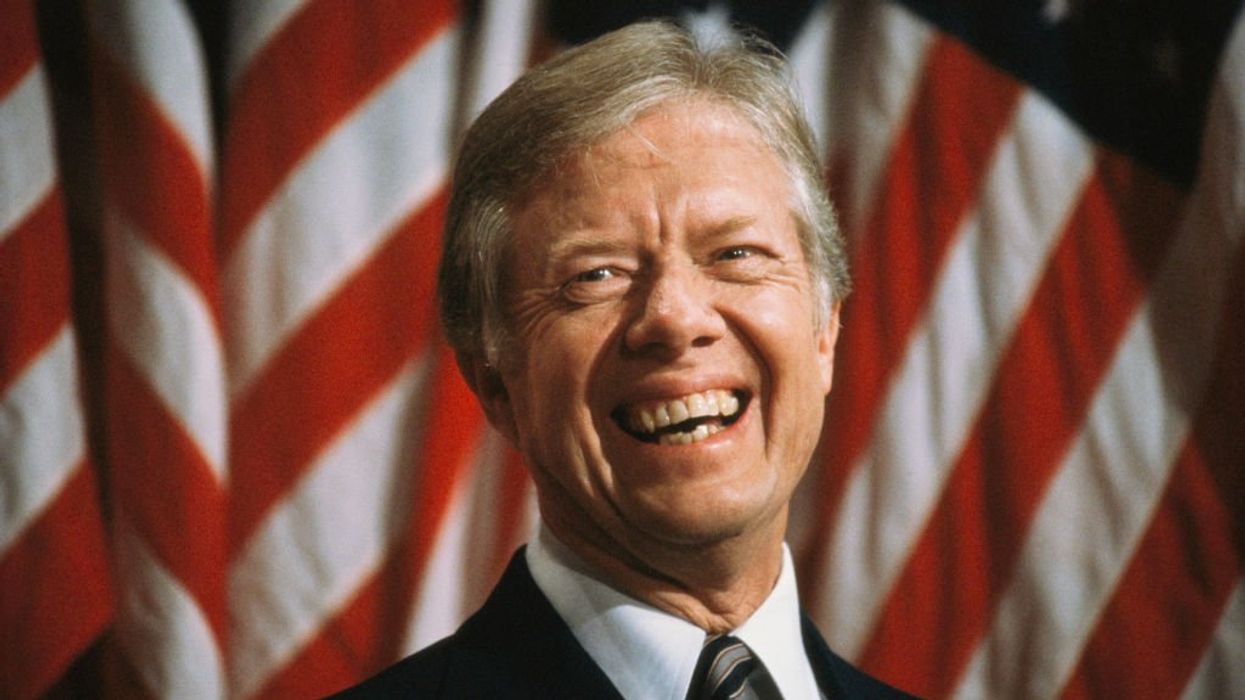At 100 years old, former President of the United States Jimmy Carter passed away on December 29, leaving a legacy of untold contributions to humanity. His tenure as Governor of Georgia was marked by denouncing the vestiges of racial segregation, strengthening the state's educational systems, and conducting governmental reform, which foreshadowed his combination of liberal social policies and fiscal conservatism as the 39th U.S. President.
Pat Merloe, contributor of many writings to the Fulcrum, shared this moving tribute:
"Upon founding The Carter Center, he and his wife and lifelong partner Rosalynn Carter championed causes for public health (including the eradication of the Guinea worm disease), promoted peaceful means for preventing and ending violent conflicts, and aided efforts to secure democracy through observing elections in numerous countries. I had the privilege of working closely with President Carter in elections on four continents, witnessing firsthand his ability to help opposing sides reconcile and peacefully accept credible electoral outcomes. That ability was based on his steadfast reputation for seeking truth through facts and pursuing the common good rather than seeking political favor or popularity. His strength was combined with warmth, and I always felt honored when he would greet me by saying, "There is my friend."
President and Rosalynn Carter's contributions will endure through The Carter Center, Habitat for Humanity, and the incalculable number of people whose lives they touched. We can benefit from reflecting on these words from his 1981 farewell presidential address: "[W]e know that democracy is always an unfinished creation. Each generation must renew its foundations. Each generation must rediscover the meaning of this hallowed vision in the light of its own modern challenges." And from his 1977 inaugural address: "Because we are free, we can never be indifferent to the fate of freedom elsewhere." It is up to each of us to meet those injunctions."
As we pay tribute to President Jimmy Carter, let us capture the profound impact and humanity of this great man by sharing some quotes from those who knew him best:
Former President Bill Clinton: "Jimmy Carter has always been a beacon of hope and a champion for peace and human rights. His dedication to improving the lives of others, even after leaving office, is truly inspiring."
Former First Lady Rosalynn Carter: "Jimmy and I have shared a remarkable journey together. His unwavering faith and commitment to service have made a lasting impact on the world."
Nobel Peace Prize Committee: "Jimmy Carter's tireless efforts in promoting peace, democracy, and human rights have earned him a place among the world's most respected leaders."
Habitat for Humanity Co-Founder Millard Fuller: "Working alongside Jimmy Carter on Habitat builds has been one of the greatest honors of my life. His humility and dedication to helping others are unmatched."
Former U.N. Ambassador Andrew Young: "Jimmy Carter's legacy is one of compassion, integrity, and a relentless pursuit of justice. He has set a high bar for all of us to follow."
Those words from those who admired and loved him indeed speak to the man President Jimmy Carter was. But some quotes from the man himself perhaps best convey the heart and soul of the 39th President of the United States.
"I say to you quite frankly that the time for racial discrimination is over. The test of a government is not how popular it is with the powerful and privileged few, but how honestly and fairly it deals with the many who must depend upon it."
— Inaugural address as Governor of Georgia. ( Carter Presidential Library)
"Our great nation now teeters on the brink of a widening abyss. Without immediate action, we are at genuine risk of civil conflict and losing our precious democracy. Americans must set aside differences and work together before it is too late."
— Carter in a New York Times op-ed, January 5, 2022.
"We must adjust to changing times and still hold to unchanging principles."
— This one's actually from Carter's grade-school teacher, Julia Coleman. Carter quoted it during his Nobel Peace Prize addressin 2002.
"The bond of our common humanity is stronger than the divisiveness of our fears and prejudices."
— Carter's closing remarksduring that same Nobel Peace Prize address.
"I have one life and one chance to make it count for something. I'm free to choose that something … my faith demands that I do whatever I can, wherever I can, whenever I can, for as long as I can."
— Undated quote, cited by Carter's niece at Maranatha Baptist Church on February 19, 2023. ( AP)
David Nevins is co-publisher of The Fulcrum and co-founder and board chairman of the Bridge Alliance Education Fund.
Pat Merloe is a member of the Election Reformers Network Advisory Council and provides strategic advice on democracy and elections in the U.S. and internationally..




















